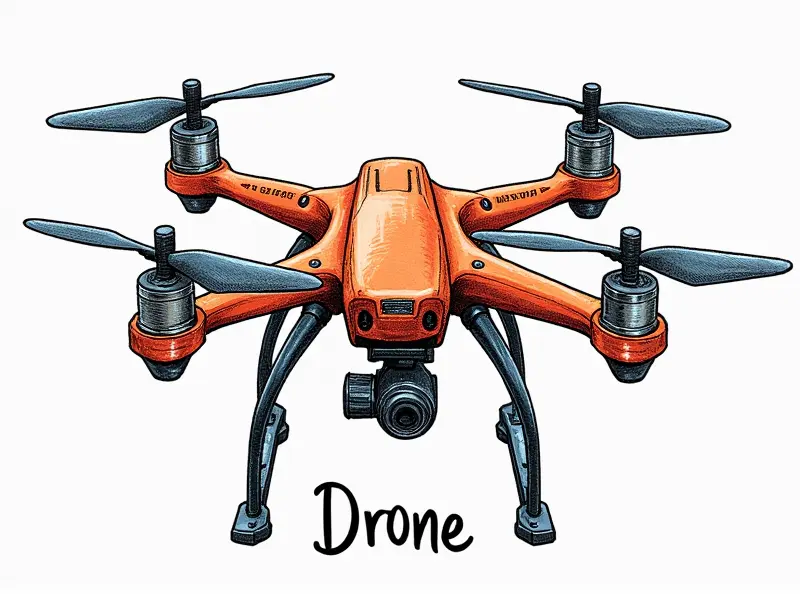Do batteries lose capacity?

Does Battery Life Decrease in RC Planes?
The question of whether battery life decreases in remote control (RC) planes is a common concern among hobbyists. The answer lies in the nature of lithium polymer (LiPo) batteries, which are commonly used in RC models. Over time and with repeated use, these batteries can experience capacity loss due to factors such as heat exposure, overcharging, and deep discharges.
Maintaining RC Helicopter Battery Performance
RC helicopter pilots need to pay special attention to battery maintenance to ensure optimal performance. Regularly checking the voltage of your LiPo cells before and after use can help identify any signs of degradation early on. Additionally, storing batteries at a moderate temperature (around 15°C or 60°F) when not in use helps preserve their capacity.
Impact of Recharging on Quadcopter Batteries
The frequency and method of recharging your quadcopter's battery can significantly affect its lifespan. Overcharging, even by a small amount, can lead to permanent damage and reduced capacity. It is crucial to use quality chargers that have built-in safety features such as overcharge protection.
Charging Tips
- Avoid trickle charging: This method can cause excessive heat buildup and degrade the battery faster.
- Use a balanced charger: Ensure that all cells in your LiPo pack are charged evenly to maintain optimal performance.
Extending the Lifespan of FPV Racing Drones
FPV racing drones often operate under extreme conditions, which can accelerate battery degradation. To extend their lifespan, it's important to monitor and manage the temperature during use and storage. Keeping batteries cool by using cooling pads or fans can significantly prolong their life.
Cooling Tips
- Use thermal insulation: Wrap your battery in a heat-resistant material to prevent excessive heating.
- Store in a cool place: Keep batteries away from direct sunlight and high-temperature environments when not in use.
Common Causes of RC Battery Capacity Loss
Battery capacity loss can be attributed to several factors, including over-discharging (allowing the battery voltage to drop too low), deep discharges, and exposure to extreme temperatures. Additionally, physical damage such as punctures or cracks in the casing can also lead to reduced performance.
Preventive Measures
- Avoid over-discharging: Always stop using your RC model before the battery voltage drops too low.
- Protect from physical damage: Use protective cases or wraps to shield batteries during transport and storage.
Tips to Maximize RC Aircraft Battery Life
To maximize the lifespan of your RC aircraft batteries, follow these tips:
- Proper Storage: Store batteries in a cool, dry place away from direct sunlight.
- Regular Maintenance: Check battery voltage and condition regularly to catch any issues early.
- Use Quality Chargers: Invest in high-quality chargers with built-in safety features.
Testing RC Drone Batteries for Remaining Capacity
Regularly testing your drone batteries is essential to ensure they are performing at their best. Use a battery analyzer or multimeter to check the voltage and capacity of each cell in your LiPo pack. This will help you identify any cells that may be failing before they cause issues during flight.
Testing Methods
- Battery Analyzer: These devices provide a comprehensive analysis of battery health, including voltage and capacity readings.
- Multimeter: A simple tool for checking individual cell voltages to ensure they are within the acceptable range.
Is Battery Degradation a Problem for RC Models?
Battery degradation is indeed a significant issue for RC models, as it can lead to reduced flight times and performance issues. However, by following proper maintenance practices and using high-quality batteries and chargers, you can mitigate the effects of capacity loss and extend the lifespan of your equipment.
Maximizing RC Battery Performance and Lifespan
To maximize both the performance and lifespan of your RC battery, consider these strategies:
- Monitor Temperature: Keep track of battery temperature during use to avoid overheating.
- Charge Properly: Use a balanced charger and follow manufacturer guidelines for charging rates.
- Store Correctly: Store batteries in a cool, dry place to prevent degradation due to heat exposure.
Impact of Temperature on RC Quadcopter Batteries
The temperature at which your quadcopter battery operates can greatly affect its performance and lifespan. High temperatures accelerate chemical reactions within the battery, leading to faster capacity loss. Conversely, extremely low temperatures can reduce the efficiency of lithium-based batteries.
Temperature Management
- Cooling Systems: Implement cooling solutions such as fans or thermal pads to keep batteries at an optimal temperature during use.
- Storage Conditions: Store batteries in a cool environment, ideally between 15°C and 25°C (60°F - 77°F).
Factors Affecting RC Drone Battery Lifespan
The lifespan of your RC drone battery is influenced by several factors:
- Battery Quality: High-quality batteries tend to last longer and perform better over time.
- Maintenance Practices: Regular maintenance, including voltage checks and proper storage, can extend battery life.
- Usage Patterns: Frequent deep discharges or prolonged use under high load conditions can shorten battery lifespan.
Conclusion
Battery capacity loss is a common issue in RC models, but with proper care and maintenance, you can extend the life of your batteries significantly. By following best practices such as monitoring temperature, using quality chargers, and storing batteries correctly, you can ensure optimal performance and longevity for your RC aircraft.

